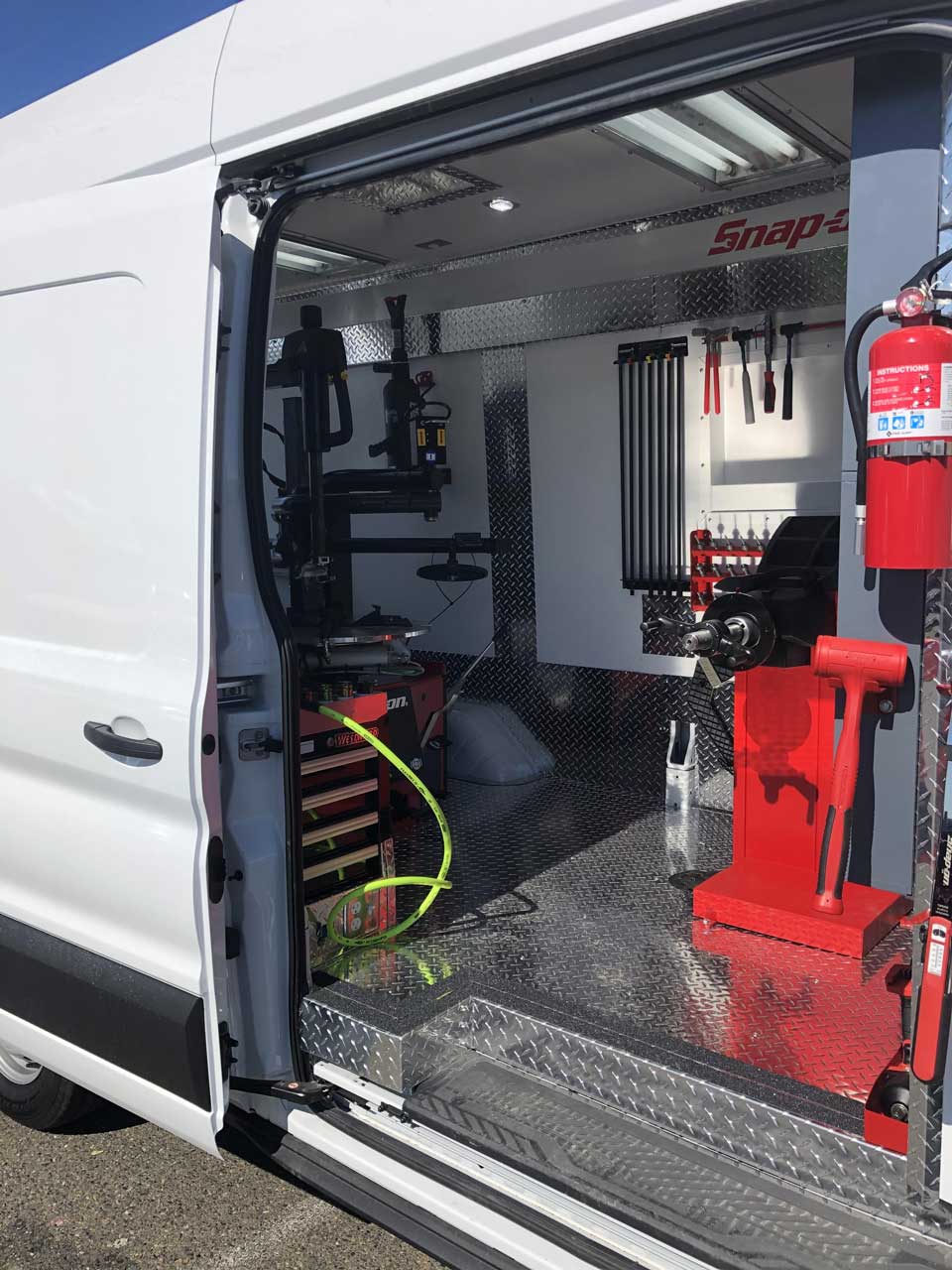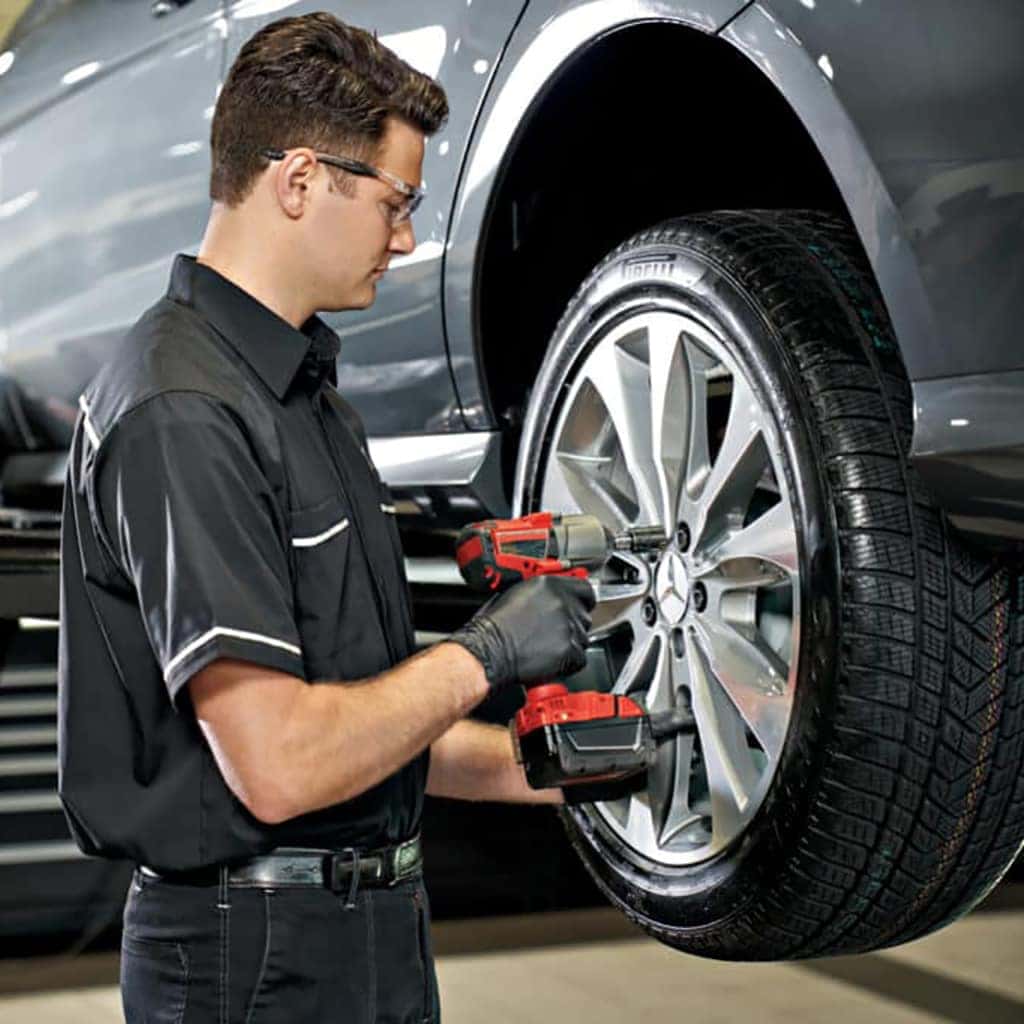Drive with Confidence: GMC Tires Service at Morris Tires
Drive with Confidence: GMC Tires Service at Morris Tires
Blog Article
Tire Service: The Effect of Climate Condition
When it comes to making certain optimal efficiency and safety and security on the road, recognizing the effect of weather condition conditions on tire service is crucial. GMC Tire Service. In this conversation, we will explore the intricate partnership between weather condition problems and tire service, losing light on the importance of weather-specific tire upkeep methods and factors to consider.
Warmth and Tire Efficiency
When exposed to high temperature levels, tires experience modifications in efficiency that can significantly affect automobile safety and handling. The warm produced from long term driving or hot weather condition conditions creates the tire rubber to soften, leading to lowered step life and raised wear.

Cold Weather Impacts
Winter conditions can have a substantial effect on tire efficiency and safety and security. As temperature levels decrease, tire rubber can solidify, resulting in lowered traction on icy or snow-covered roads. In winter, tires may also shed air pressure much more quickly, which can impact taking care of and fuel effectiveness. In addition, cold temperature levels can trigger tire sidewalls to stiffen, increasing the threat of damage from potholes or other roadway threats.
To mitigate the impacts of winter on tires, it is critical to frequently examine tire stress and inflate them to the producer's suggested levels. Utilizing winter months or all-season tires developed for chilly weather conditions can additionally improve grip and grip on icy or snowy roads. Proper tire maintenance, consisting of normal examinations for wear and damage, becomes much more essential throughout cooler months to guarantee optimal efficiency and security.
Rainy Issues Effect
Tires with worn-out footsteps are more susceptible to hydroplaning, where a layer of water builds up in between the road and the tire surface, leading to loss of grip. To battle this, motorists ought to on a regular basis examine their tires for adequate tread depth and think about spending in tires specifically developed for wet problems.
Moreover, stormy weather can likewise reduce exposure, making it challenging for vehicle drivers to see the roadway in advance plainly (GMC Tire Service). In such conditions, it is necessary to adjust driving speeds accordingly and preserve a secure complying with distance to enable sudden quits. Correctly inflated tires can additionally help in maintaining control on damp roadways by giving far better handling and grasp
Snow and Tire Security
Snow-covered roadways pose one-of-a-kind difficulties for motorists, stressing the significance of appropriate tire selection and upkeep. When driving in snowy conditions, having the best tires can make a significant distinction in safety and efficiency. Winter season tires are created with special rubber substances and tread patterns to give far better grip on snow and ice compared to all-season tires. The much deeper treads and sipes of winter tires assist grasp the road much better, lowering the risk of slipping and moving.

Additionally, motorists must consider installing tire chains in severe snowy conditions. Tire chains supply added grip by clutching the snow and ice, boosting stability and control. It is vital to follow producer directions when installing and using tire chains to protect against damages to the tires and automobile (GMC Tire Service). By selecting the appropriate tires, maintaining proper rising cost of living, and taking into consideration additional grip aids like tire chains, chauffeurs can boost their safety and security when browsing snow-covered roads.
Weather-Related Tire Maintenance
When confronted with various weather, correct tire upkeep comes to be a critical element of lorry safety and security and performance. Weather-related tire upkeep encompasses a series of practices focused on guaranteeing ideal tire feature and longevity in various climate scenarios. One essential element of weather-related tire maintenance is tire stress regulation. Fluctuating temperatures can cause tire stress to vary, influencing traction and fuel effectiveness. Consistently changing and checking tire pressure according to supplier recommendations is necessary for secure driving in transforming climate condition. Furthermore, tire tread deepness plays a considerable function in taking care of different climate components. Tires with appropriate walk deepness offer much better grip on wet or icy roads, decreasing the risk of hydroplaning or skidding. When step wear gets to a particular deepness is crucial for preserving traction and stability in negative climate, checking tire tread consistently and replacing tires. By prioritizing weather-related tire maintenance, drivers can improve security, boost vehicle efficiency, and prolong the life-span of their tires.
Conclusion
Finally, weather have a considerable effect on tire performance and safety and security. From heat impacting tire pressure and use to visit site cold climate decreasing traction, it is important to think about the climate when preserving and making use of tires. Wet problems can reduce grasp and result in hydroplaning, while snow can enhance the risk of mishaps if tires are not properly learn the facts here now outfitted. Weather-related tire upkeep is important in making certain ideal performance and safety and security when traveling.
In this conversation, we will certainly discover the elaborate partnership in between weather conditions and tire solution, losing light on the relevance of weather-specific tire upkeep practices and factors to consider.

Report this page